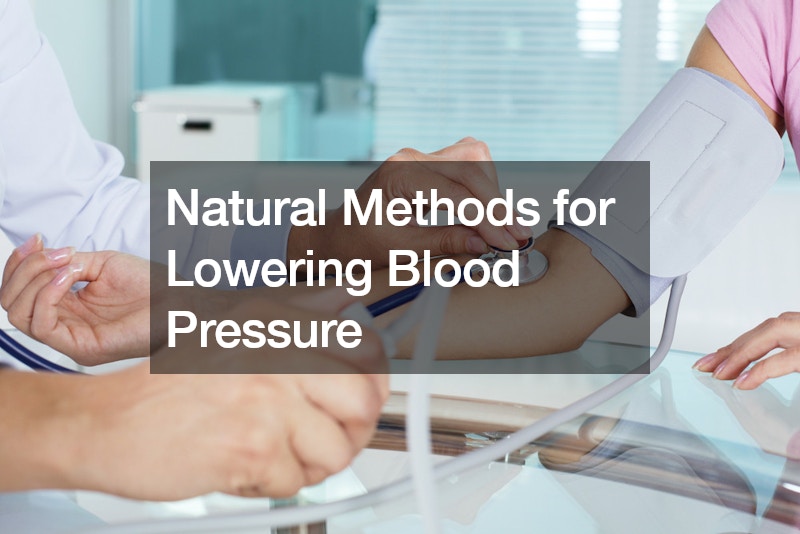High blood pressure, also known as hypertension, affects millions of people worldwide and is a significant risk factor for heart disease, stroke, and other cardiovascular complications. While medications are commonly prescribed to manage hypertension, there are also natural methods that can help lower blood pressure effectively. In this article, we’ll explore some simple yet powerful strategies recommended by cardiologists to naturally reduce blood pressure and improve overall heart health.
1. Weight Loss:
One of the most impactful ways to lower blood pressure naturally is by shedding excess weight. Studies have shown that even modest weight loss can lead to significant reductions in blood pressure levels.
By adopting healthier eating habits and incorporating regular exercise into your routine, you can achieve and maintain a healthy weight, thus reducing the strain on your heart and lowering blood pressure.
2. Dietary Changes:
The foods we eat play a crucial role in blood pressure management. Following a balanced diet that emphasizes fruits, vegetables, whole grains, and lean proteins while limiting sodium intake can help lower blood pressure naturally. The DASH diet (Dietary Approaches to Stop Hypertension) is particularly effective in this regard, as it promotes heart-healthy eating habits and has been shown to lower blood pressure levels.
3. Sodium Reduction:
Excessive sodium intake is a major contributor to high blood pressure. Therefore, reducing the amount of sodium in your diet can have a significant impact on lowering blood pressure. Be mindful of hidden sources of sodium in processed and packaged foods, and opt for fresh, whole foods whenever possible. Limiting salt intake and choosing low-sodium alternatives can help keep blood pressure in check and reduce the risk of cardiovascular disease.
4. Potassium-Rich Foods:
Potassium is an essential mineral that plays a key role in blood pressure regulation. Consuming foods rich in potassium, such as bananas, leafy greens, sweet potatoes, and avocados, can help counteract the effects of sodium and lower blood pressure naturally. Including these foods in your diet can contribute to better heart health and improved blood pressure control.
5. Regular Exercise:
Physical activity is another effective way to lower blood pressure naturally. Engaging in regular aerobic exercise, such as brisk walking, swimming, or cycling, can help improve cardiovascular fitness and reduce blood pressure levels. Aim for at least 150 minutes of moderate-intensity exercise per week, supplemented with light resistance training for optimal results in blood pressure management.
6. Alcohol Moderation:
While moderate alcohol consumption may have some cardiovascular benefits, excessive drinking can raise blood pressure and increase the risk of heart disease. To lower blood pressure naturally, it’s essential to limit alcohol intake to no more than one drink per day for women and two drinks per day for men. By practicing moderation, you can maintain healthy blood pressure levels and protect your heart health.
Importance of Adequate Sleep: Quality sleep is essential for maintaining healthy blood pressure levels. Lack of sleep or poor sleep quality can lead to increased blood pressure and other cardiovascular problems. Establishing good sleep habits, such as maintaining a consistent sleep schedule and creating a relaxing bedtime routine, can support better blood pressure regulation.
Herbal Supplements and Remedies: Certain herbs and supplements have been studied for their potential to lower blood pressure naturally. Examples include garlic, hibiscus tea, and omega-3 fatty acids. While these supplements may offer some benefits, it’s essential to consult with a healthcare professional before incorporating them into your routine, especially if you’re already taking medication for high blood pressure.
Stress Management Techniques: Stress can significantly impact blood pressure. Incorporating stress management techniques like deep breathing, meditation, and yoga into your daily routine can help reduce stress levels and promote better blood pressure control. These practices encourage relaxation, which can have a positive effect on your overall cardiovascular health.
Benefits of Regular Monitoring: Monitoring your blood pressure regularly is crucial for early detection of any fluctuations or abnormalities. By tracking your blood pressure at home and visiting your healthcare provider for routine screenings, you can identify potential issues early and take proactive steps to manage them, reducing the risk of complications associated with high blood pressure.
Lifestyle Modifications for Hypertension Prevention: Making lifestyle changes can play a significant role in preventing hypertension. Strategies like quitting smoking, limiting caffeine intake, maintaining a healthy weight, and managing conditions like diabetes and high cholesterol can help lower your risk of developing high blood pressure and promote overall cardiovascular health.
In conclusion, adopting healthy lifestyle habits can play a significant role in lowering blood pressure naturally and reducing the risk of cardiovascular disease. By focusing on weight loss, dietary changes, sodium reduction, potassium intake, regular exercise, and alcohol moderation, you can effectively manage blood pressure and promote overall heart health. Incorporating these natural methods into your daily routine can lead to long-term benefits and better control of blood pressure levels, ultimately contributing to a healthier and happier life.
.

